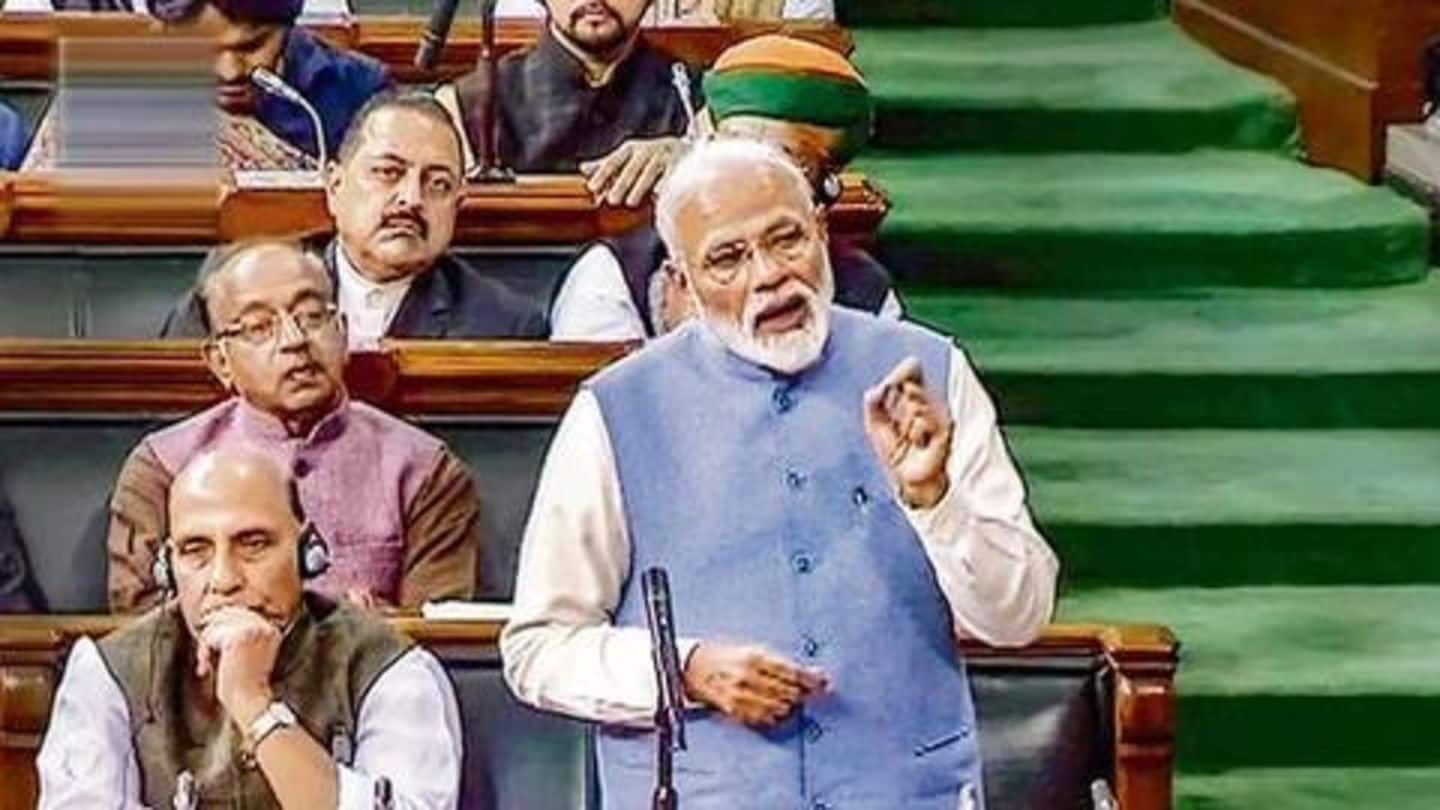
Was 16th Lok Sabha productive? Let the numbers talk
What's the story
On Wednesday, the 16th Lok Sabha was dissolved for the general elections, due in April-May. In almost two months from now, some of the lawmakers will return to the House while others would have to taste defeat.
In his last address, Prime Minister Narendra Modi praised his government for passing crucial bills.
But was the Lok Sabha really productive? Let's look at the numbers.
Last day
BJP's win to Mulayam Singh Yadav's support: What happened yesterday
The last day of Lok Sabha ended on a high note for NDA, led by BJP.
The CAG report of Rafale deal concluded NDA struck a cheaper deal with France. In terms of delivery too, NDA's deal beat UPA's, found the report.
If this wasn't enough to boost BJP's morale, Samajwadi Party patriarch said he would like to see Modi as PM again.
Work hours
Now the productivity: How long did our leaders work for?
According to PRS Legislative Research, the 16th Lok Sabha had the second lowest hours of work done as compared to other full-terms.
From June 2014 to February 2019, a total of 133 bills were passed in the Lok Sabha.
The house worked for 1,615 hours. Notably, previous full-term Lok Sabhas worked for an average of 2,689 hours, hinting this one was far less productive.
Discussions
Our MPs discussed a lot of bills
The 16th Lok Sabha spent more time than others on legislation. While other sessions of Lok Sabha dedicated just 25% of their time to legislation, NDA under PM Modi spent 32% doing the same.
A lot more time was given for bills' discussion in the 16th Lok Sabha, but not many bills were sent to committee for scrutiny.
Information
43 bills, including Citizenship and Triple Talaq, lapsed
Notably, 26% of the bills passed in the 16th Lok Sabha were related to the financial sector. 46 bills, including the contentious Citizenship (Amendment) Bill and Triple Talaq bill, lapsed in absence of nod from Rajya Sabha.
Disruption
Lok Sabha lost a chunk of time to disruptions
The 16th Lok Sabha lost 16% of its time to disruptions. Though it was better than UPA II (15th Lok Sabha lost 37% of the time to disruptions), it was marginally worse than UPA I, when 13% of the time was wasted.
100% of the demands of the 2018-19 budget were approved without any debate.
This also happened during both tenures of UPA.
Question hour
Notably, question hour wasn't fruitful
The disruptions took a toll on question hour. Only 18% of the starred questions received an oral answer in the 16th Lok Sabha. The question hour functioned for 67% of its scheduled time.
NCP's Supriya Sule and Vijay Singh Shankarrao Mohite asked more than 1,100 questions. At least five Shiv Sena MPs asked more than 1,000 questions.
Congress' Rajeev Shankar Rao asked 1,105 questions.
Members
Rahul Gandhi attended 14 debates, but didn't introduce any bill
Congress President Rahul Gandhi's attendance was just 52% and he didn't introduce any private member bill. He participated in 14 debates.
Bhairon Prasad Mishra (BJP), Gopal Chinnaiya Shetty (BJP), Kulamani Samal (BJD), and Ramesh Chander Kaushik (BJP) had 100 percent attendance.
BJP MP from Jharkhand, Nishikant Dube, brought 48 private member bills. He was followed by his colleague Gopal Chinayya Shetty, who introduced 32.